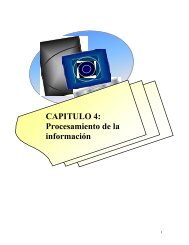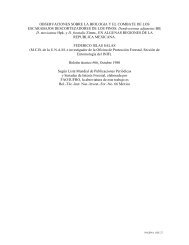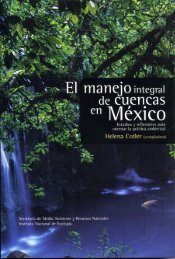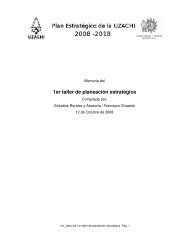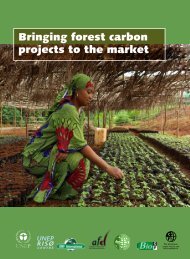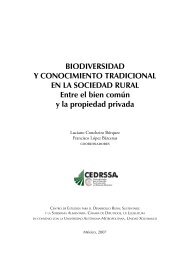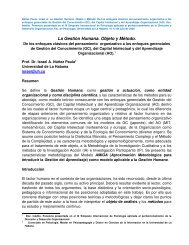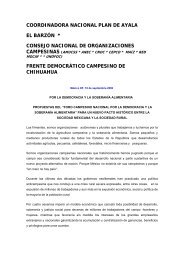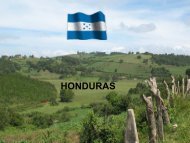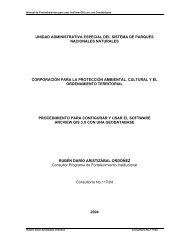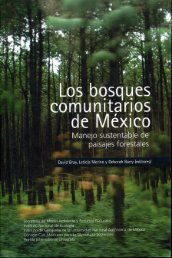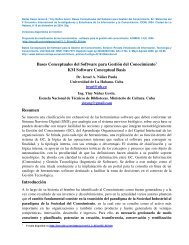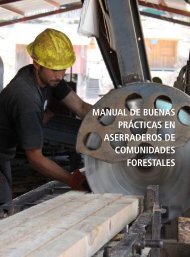STATE OF THE WORLD's INDIGENOUs PEOpLEs - CINU
STATE OF THE WORLD's INDIGENOUs PEOpLEs - CINU
STATE OF THE WORLD's INDIGENOUs PEOpLEs - CINU
- No tags were found...
Create successful ePaper yourself
Turn your PDF publications into a flip-book with our unique Google optimized e-Paper software.
EMBARGOED UNTIL 14 January 2010<strong>STATE</strong> <strong>OF</strong> <strong>THE</strong> WORLD’S INDIGENOUS PEOPLESNot for distributionexercised and enjoyed. Most indigenous communities already have a clearsense of the impact of human rights abuses. Yet such indicators may be useful inspecifying and linking human rights violations to specific existing and emergingstandards in international human rights law. 75Concluding RemarksThis short chapter has only hinted at the severity and range of issues that requiregreater attention. Given the reality and condition of indigenous human rightsand this brief cataloguing of abuses, it may be necessary for the United Nationsto bolster the role and mandate of the Special Rapporteur on the human rightsand fundamental freedoms of indigenous people in order to specifically monitorstate action or inaction. The newly established Expert Mechanism on the Rightsof Indigenous Peoples by the Human Rights Council may also help the UnitedNations to substantively respond to the urgent human rights conditions beingsuffered by indigenous peoples worldwide. Let us hope that the existing treatybodies enhance and influence indigenous/state dialogue and state actionsthrough their interpretation of the Declaration and corresponding review andreceipt of state reports as well as consideration of human rights complaints. Forexample, the CERD and its potential for more active use of their early warning andurgent action procedures in the context of indigenous peoples may be critical.Yet at the same time, state governments, as the pivotal source of aggressiontoward indigenous peoples, must be compelled to respect and recognize thehuman rights of indigenous peoples. All such actions and more are necessaryintermediate steps to be taken before the political milieu can become favourableto transforming the UN Declaration into a legally-binding covenant with acorresponding treaty body.In the meantime, indigenous peoples will continue to be proactive in the defenceof their human rights. Further steps must be taken in the area of human rightseducation and learning. The success of self-determination largely dependson the extent to which human rights concepts are understood by indigenouspeoples within their home communities. Dialogue and training are critical tostrengthening political organizations as well as developing political, economic,social and legal strategies with which to promote and protect indigenoushuman rights.indigenous peoples willcontinue to be proactivein the defence of theirhuman rightsAre human rights concepts and the content of the collective and individualhuman rights known and understood by those who assert self-determination?Are human rights concepts integrated in the community? Through human rightseducation and learning, political leaders as well as community members canexplore the real meaning or effect of exercising and enjoying human rights at the75 The United Nations Permanent Forum on Indigenous Issues has been promoting thedevelopment of indicators with the direct involvement of indigenous peoples themselves.After an intense period of regional and global meetings on the subject, a synthesis paperwas presented at the Forum’s Seventh Session. See UNPFII (2008).HUMAN RIGHTS | 211



